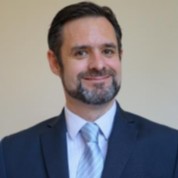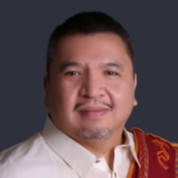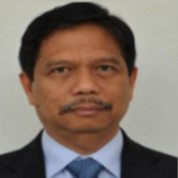Parallel Session 1.4
Financing Pandemic Preparedness: Where is the Money?
1 February 2018
14:30 - 16:30 hrs.
| Venue | : | LOTUS SUITE 5-7 |
BACKGROUND :
Recent experiences with the Ebola, Zika, and SARS outbreaks, among others, have underscored the need for countries to invest in pandemic preparedness, and to do so not only from a health perspective but also from an economic perspective: the socio-economic cost of outbreaks is often proportionally much larger than the corresponding impact on mortality and morbidity.
The International Working Group on Financing Preparedness (IWG) has recently made several recommendations to integrate pandemic preparedness into international macro-economic and market assessments that determine the availability of concessionary and other international financing eligible lower and middle income countries.
To date, however, what has largely been missing in global and country-level discussions is a systematic understanding about adequacy and modality of current financing arrangements for health security. Part of pandemic preparedness is embedded in health financing and service delivery. Part also deals with animal health which is the responsibility of livestock/agriculture sector. In addition to its multisectoral nature, there are contingency financing arrangements for pandemic preparedness that may or may not be linked to how countries manage other natural or man-made disasters. There is also risk that health security and pandemic preparedness may get lost in health financing transition that focuses more on financial protection and access to individual services than public goods.
Given the complexity of pandemic preparedness, better understanding of the current financing landscape would enable an informed dialogue on financing gaps and how best they could be filled given domestic and international fiscal constraints. The nature of health security implies that some of the objectives and functions that may be applicable to a generic health financing system would need to be amended to consider some of the unique characteristics of the specific sub-set of activities that constitute health security.
OBJECTIVES :
The objective of this session is to discuss issues on financing health security within the broader context of trends in health and public financing more generally. Specifically, the session will:
- Provide an overview of how to conceptualize and estimate financing for health security, including preparedness, response and recovery;
- Present and discuss some preliminary findings on health security financing analysis from select countries, including a 10-year evaluation of OIE PVS Pathway and gap analysis to strengthen/finance veterinary services;
- Examine key domestic policies and interventions to ensure sustainable financing for pandemic preparedness and opportunities for mobilizing domestic and international financing for rapid response.
Moderator

Timothy Grant Evans
Senior Director, Health, Nutrition and Population Global Practice
The World Bank
United States of America
Panelist

Benjamin Rolfe
CEO
Asia Pacific Leaders Malaria Alliance
Singapore

Eduardo Banzon
Principal Health Specialist
Asian Development Bank
Philippines

Julian Naidoo
Chief of Party
Wits Health Consortium
South Africa

Naoko Yamamoto
Assistant Director-General for Universal Health Coverage and Health Systems Cluster
World Health Organization
Switzerland
Netsanet Workie
Senior Health Economist
The World Bank
United States of America

Ronello Abila
OIE Subregional Office Representative
World Organisation for Animal Health
Thailand
Stephanie Williams
Principal Health Specialist
Department of Foreign Affairs and Trade
Australia
Tran Dac Phu
General Director, General Department of Preventive Medicine
Ministry of Health
Viet Nam
Documents
Biosketch:
Power Point

